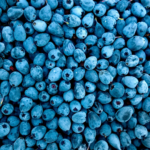With all of the fast food options available these days, it’s easy to fall into a nutrient-deficient diet. It’s okay to have a processed snack now and then, but if you don’t get enough vitamins, you may get symptoms that can harm your health.
If you recognize the symptoms, you can make dietary modifications to restore your body’s nutrient balance and get back on track.
Hair Loss
Hair loss can be caused by a deficiency in a number of minerals, including iron, zinc, linoleic acid, and niacin (B3), as well as biotin (B7). Because iron is involved in DNA synthesis, particularly in hair follicles, it is beneficial. Hair can stop growing or fall out if there isn’t enough of it. Zinc is involved in protein synthesis and cell division, which are both necessary for hair development.
Meat, fish, eggs, beans, and dark leafy vegetables are all good sources of zinc and iron, as well as biotin and niacin. These nutrients can also be replenished by nuts, seeds, and whole grains.
Hair loss is quite frequent; up to 50% of people report losing some hair by the time they reach middle age. Hair loss pills, on the other hand, should be avoided. Some contain vitamin A and selenium, which can both contribute to hair loss.
Brittle Nails and Hair
While there are several variables that contribute to brittle hair and nails, one of the most important is a lack of biotin, often known as vitamin B7.
A shortage of vitamin B7 can cause brittle, thinning, and splitting hair and nails, as well as chronic weariness, muscle soreness and cramps, and tingling in the extremities. You are at an increased risk for this deficiency if you are pregnant, a heavy smoker or drinker, or if you have a digestive issue. Your risk level rises if you take anti-seizure medicine or antibiotics for an extended period of time.
Raw egg whites should also be avoided because they contain a protein that binds to biotin and reduces its absorption in the body.
Eat egg yolks, fish, meats, dairy, seeds, broccoli, sweet potatoes, whole grains, and bananas to boost your B7 levels. Supplements are also available, however few trials have been conducted to validate their effectiveness.
Dandruff or Patchy Scalp
Dandruff and seborrheic dermatitis are common in newborns, adolescents, and adults. Because they damage the body’s oil-producing areas, they manifest as dry, itchy, peeling skin.
Low zinc or niacin levels, as well as low riboflavin (B2) and pyridoxine (B6) levels, might cause these symptoms. Consume whole grains, poultry, meat, fish, eggs, dairy, or starchy vegetables to boost your levels of these nutrients.
Restless Leg Syndrome
Restless leg syndrome affects roughly 10% of Americans, with women being twice as likely as men to suffer from it. Symptoms usually peak during periods of rest or sleep. It comes from a nerve problem that causes unpleasant leg feelings and an involuntary need to move them.
More research is needed, although preliminary findings suggest a relationship between RLS and low iron levels. Symptoms usually begin during pregnancy, when women’s iron levels are likely to be lower than normal.
Iron supplementation can help with iron deficiency, which reduces RLS symptoms in most people, but the effects vary from person to person.
Try eating meat, chicken, fish, beans, dark green leafy vegetables, nuts, seeds, and grains to naturally boost your iron levels. When you combine these foods with foods that are high in vitamin C, you’ll be able to get more iron into your system while also enhancing your iron absorption.
Bleeding Gums
Gum health is incredibly essential, and there are numerous variables that influence its health, including brushing and flossing on a regular basis. However, if your diet is deficient in vitamin C, your gums may bleed.
Because we don’t produce vitamin C on our own, the only way to maintain adequate amounts is through eating. Low vitamin C levels are prevalent, with 13-30% of the population having low levels and 17% of the population being vitamin C deficient. Vitamin C deficiency causes more than just bleeding gums. Nosebleeds, sluggish wound healing, and dry skin are all possible side effects.
Eat at least two servings of fruit and three dishes of veggies every day to receive adequate vitamin C.
Mouth Lesions
Iron deficiency or low levels of B vitamins may also be connected to canker sores and other mouth ulcers. According to one study, 28% of individuals with mouth sores had deficits in B1, B2, or B6.
Meat, poultry, fish, beans, nuts, seeds, and whole grains, like the preceding section, can help you get more of these vitamins and minerals. Keep in mind that a diet rich in these items can help alleviate many vitamin deficiencies. B vitamins can also be obtained through starchy foods and eggs.
Anemia
Fatigue, shortness of breath, dizziness, irregular heartbeat, muscle weakness, pale complexion, and numbness in the limbs are all symptoms of anemia. The cause is a buildup of abnormal red blood cells that are overly big and don’t transport oxygen as effectively as they should. Vitamin B12 and folate, which can be added to your diet through supplements, are required for red blood cell growth.
Poor Night Vision
Vitamin A is essential for good vision, especially at night or in dim light. The vitamin aids in the production of rhodopsin, a pigment found in the retinas that aids night vision. It doesn’t end there, though. If you suffer night blindness for a long time, it might cause cornea damage and vision loss. The symptoms, on the other hand, can be alleviated by supplementing with vitamin A.
What are the options for replenishment? Carrots and sweet potatoes, which are yellow and orange in color, can be extremely beneficial. Organ meats, dairy, eggs, seafood, and dark leafy greens can also boost your levels.
Just be careful not to overdo it. Vitamin A toxicity can result in nausea, headaches, and joint pain if consumed in excess.
Conclusion
The human body is reliant on the nutrients we consume every day as a result of our dietary choices. You’ve probably noticed that most of the deficits may be remedied by eating the same types of nutritious and diverse foods: protein, fruits and vegetables, dairy, and grains. Maintain a diet rich in fresh items from those food groups, and you should find relief from your symptoms.










